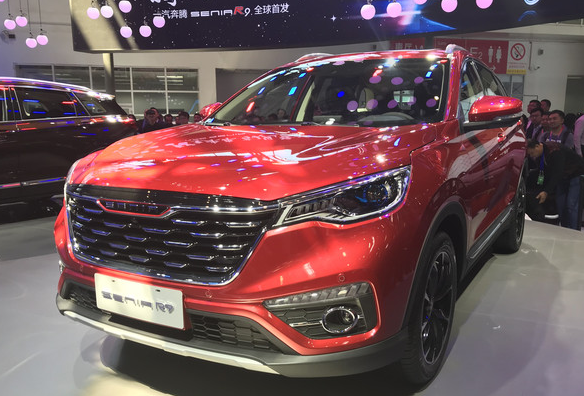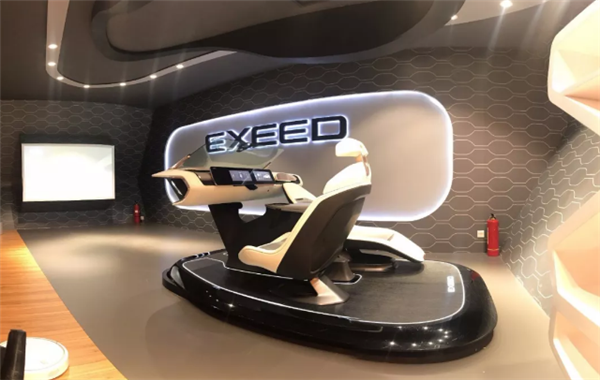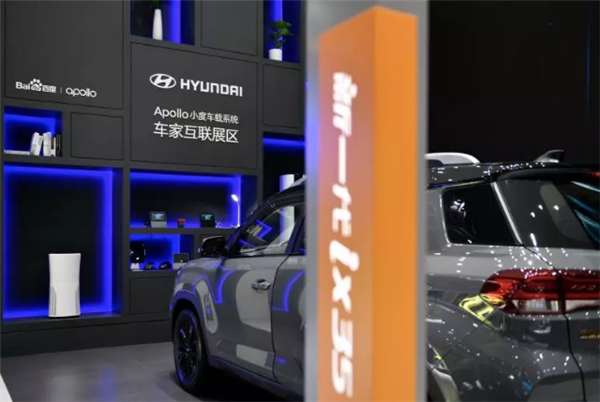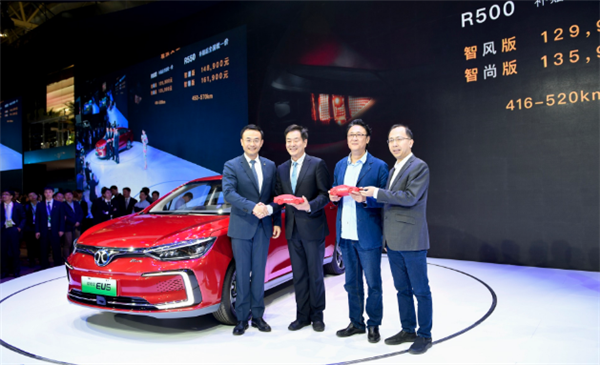Baidu Apollo partners exhibit cooperative achievements at Auto China 2018

Shanghai (ZXZC)- FAW Group, Chery Auto, Hyundai Motor, Panasonic and other Baidu Apollo's partners have showed off Apollo-powered products at Auto China 2018. In the meantime, the world's first human-vehicle interactive AI system has been officially presented to the public.
FAW Besturn unveils SENIA R9 equipped with DuerOS for Apollo

At Auto China 2018, FAW Besturn unveiled the SENIA R9 that is expected to go on sale in May this year. The SENIA R9 is embedded with the Baidu Apollo in-car system dubbed “DuerOS for Apollo”, which possesses powerful functions of speech recognition and semantic analysis.
Besides, the “DuerOS for Apollo” holds the powerful map with a huge bulk of location information and a wide coverage of road network and has massive music and audio resources that let drivers listen to their ideal programmes whenever they want.
Baidu Apollo extends cooperation with FAW Group in diverse areas, such as autonomous driving, IoV (Internet of Vehicles) and cybersecurity, etc. The automaker and Baidu had previously co-built the Apollo Vehicle Cybersecurity Lab to research on the subject related to intelligent driving cybersecurity. Additionally, more ICV (intelligent-connected vehicle) and autonomous driving models co-developed by both parties will be promoted in the future.
Chery Auto showcases LION cockpit, monitoring house through video-calling

Chinese state-owned automaker Chery Auto showcased the EXEED concept model and the LION intelligent cockpit, which are co-developed with Baidu. Same as FAW Besturn's SENIA R9 mentioned above, the LION intelligent cockpit is equipped with the “DuerOS for Apollo” as well, which endows the cockpit with industry-leading capabilities of speech recognition and analysis.
Meanwhile, car owners are able to know the condition of their houses at any time by virtue of the video-calling, a trailblazing function that is applied in the "DuerOS for Apollo".
Moreover, the LION cockpit is able to provide tailored services according to users' routine habits, such as adjusting the seat based on drivers’ riding behaviors and selecting desirable music for users. The LION will purportedly be installed in the EXEED production models.
Hyundai Motor, Baidu Apollo co-build user-friendly in-vehicle terminal

Baidu Apollo and the Korean automaker Hyundai Motor jointly exhibited some ICV solutions at the event, such as facial log-in, voice-controlled vehicle and fatigue driving monitoring, etc. Besides, both exhibitors demonstrated that human can control some smart-home devices like desk lamp, curtain and air cleaner from vehicle via the “DuerOS for Apollo”.
Reportedly, the “DuerOS for Apollo” is available for the manipulation of over 20 types of smart-home facilities, such as lamp, socket, air cleaner, heater, and so on. Meanwhile, vehicle owners are able to control car doors, windows, and air conditioning and receive vehicle data from home.
Based on DuerOS, the world's first human-vehicle dedicated AI system, Apollo takes the lead in providing the solution of AR (augmented reality) navigation, which is greater than conventional navigation system in visual effect, accuracy and responding speed.
BAIC BJEV launches Darwin System based on Baidu AI tech

BAIC BJEV launched the vehicle artificial intelligent (AI) system, Darwin System, at Auto China 2018. Besides, the EU5 equipped with the Darwin System started presale with price range between RMB 129,900 and RMB 161,900, after eliminating the NEV subsidies.
Through cooperating with foreign and domestic partners, especially Baidu Apollo, the Darwin System has realized an array of intelligent diving functions, including ADAS, L3 autonomous driving, intelligent cabin monitoring and valet parking.
By virtue of Baidu's AI core technologies, BAIC Motor and Baidu Apollo will accelerate the mass production of L3 and L4 self-driving vehicles in the future base on the Apollo platform and the automaker's vehicle platform.
Baidu Apollo to build splendid autonomous driving ecosystem
Aside from the cases mentioned above, Baidu Apollo also joined hands with other domestic and oversea companies to showcase cooperative achievements at Auto China 2018.
For instance, Apollo and the world-leading electronics provider Panasonic jointly exhibited industrial ICV solutions, which are based on the "DuerOS for Apollo" and BAIC BJEV's vehicle platform.
In addition, Pandauto, the car-sharing platform of Lifan Group, demonstrated the autonomous pick-up and drop-off function at the event since it formed strategic cooperation with Baidu in November last year. Meanwhile, JAC Motors and WM Motor also brought products based on the Apollo platform to the splendid auto show in Beijing.
What's more, the Chinese EV startup BYTON, whose first model the BYTON Concept attracted a lot of attention again after the CES 2018, had announced that the company had teamed up with Baidu Apollo to cooperate in AI in-vehicle system. Both parties will co-develop multifarious functions, such as voice assistant and picture recognition, which are applicable to BYTON's interactive interface.
Trial rides of Baidu's self-driving bus Apolong was open to the public during the Digital China Summit from April 22 to 24 in Fuzhou, the capital of Fujian province. This was the first-time L4 self-driving vehicle trial rides open to publics in China. According to relevant introduction, the Apolong is the China's first self-driving microcirculation bus co-developed by Baidu and the Chinese commercial vehicle maker King Long.
On April 19, Baidu unveiled the Apollo 2.5, the latest version of the open autonomous driving platform that currently supports vision-based high-speed autonomous driving in limited areas.
At the ceremony for Apollo's one-year anniversary, Baidu announced that BYD has officially joined the Apollo platform and became its 100th partners. Meanwhile, the Internet giant also announced the establishment of the Apollo Automotive Cybersecurity Lab to further promote the safety implementation of autonomous driving.

